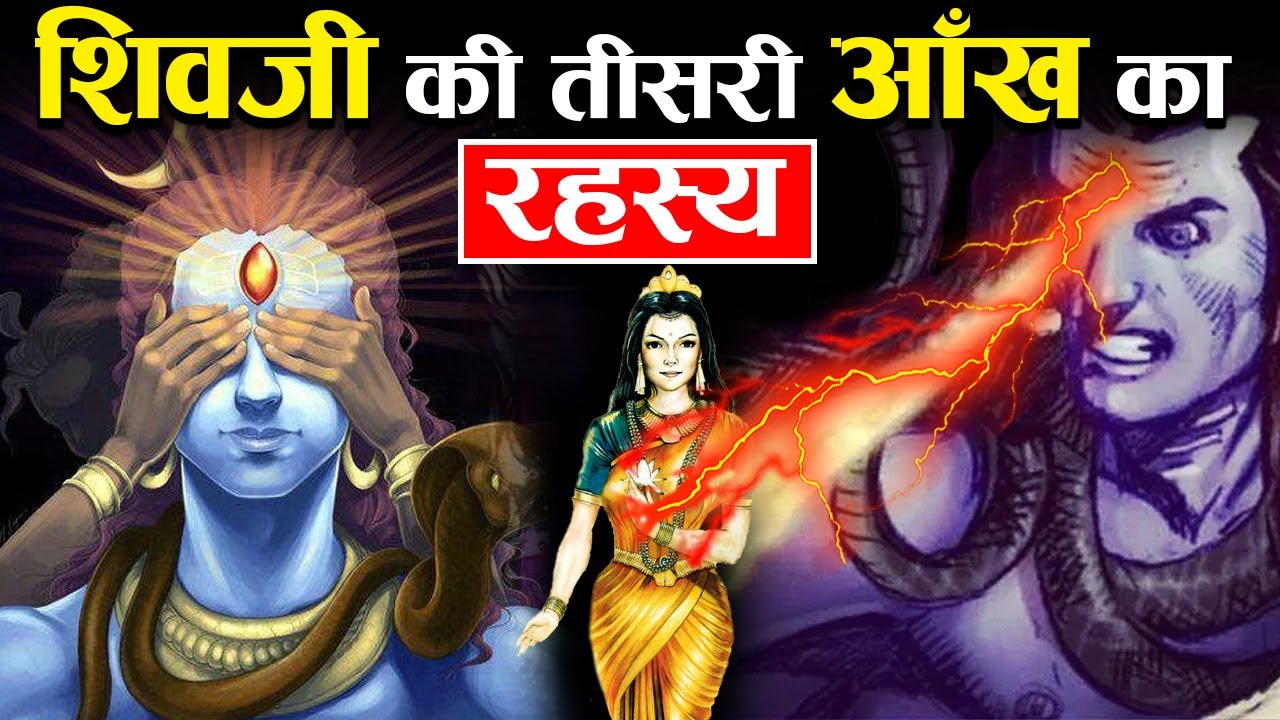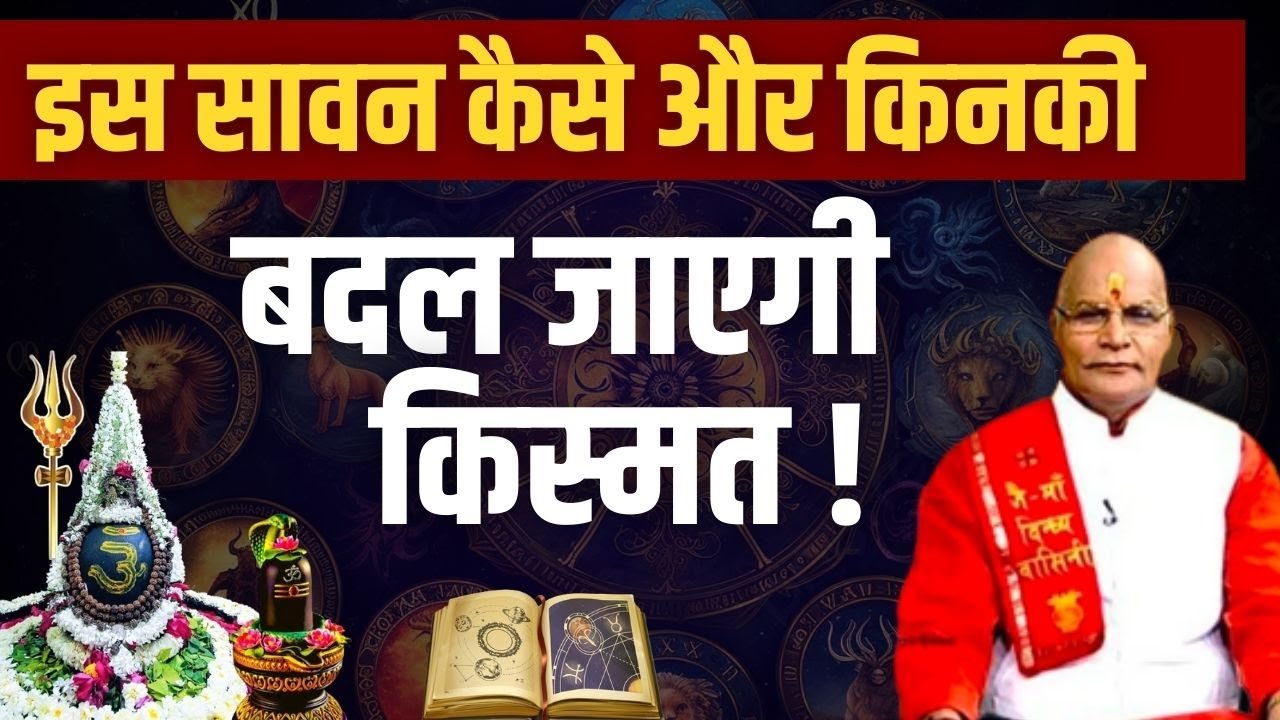हो भोले छोड़ दो ना भंगिया हमारे लिए 🙏 गौरा मां ने क्या मांग लिया 🙏भोलेनाथ से 🙏
Summary
TLDRThe script is a devotional song praising Lord Shiva and Goddess Parvati, set on a Monday in the Hindu month of Sawan. It narrates a playful dialogue between the divine couple, with Parvati expressing her devotion by forsaking everything for Shiva, to which Shiva responds lightheartedly. The song is filled with love and devotion, urging listeners to enjoy its beauty and participate in the celebration of their divine union.
Takeaways
- 🙏 The script is a devotional song praising Lord Shiva (Bholenath) and Goddess Parvati, highlighting their divine union.
- 🎉 It mentions a festive occasion, specifically a Monday in the month of Sawan, which is significant in Hindu traditions.
- 👰 The song personifies Goddess Parvati as a new bride who has come to Lord Shiva after marriage, emphasizing her devotion and sacrifice.
- 🌟 The lyrics express Goddess Parvati's willingness to leave everything for Lord Shiva, seeking nothing in return.
- 🎶 The script invites the audience to listen to the beautiful and joyful song, promising a delightful experience.
- 👨👩👧👦 It conveys a sense of community and family, as the song is shared with a broader audience, inviting them to participate and enjoy.
- 🌺 The song uses repetitive phrases like 'Bhole Chhod Do' to create a rhythmic and memorable melody.
- 🌟 The script includes a call to action for the audience to comment and share what they have 'let go' and 'adopted' in their spiritual journey.
- 🙌 It ends with a strong emphasis on devotion to Lord Shiva, urging the audience to express their devotion by writing 'Jai Bholenath'.
- 🎵 The overall theme of the script is one of devotion, celebration, and the joy of spiritual surrender.
Q & A
What is the main theme of the script?
-The main theme of the script is a devotional song where Mata Parvati, newly married, is asking Lord Shiva to give up certain habits as a sign of his love and commitment to her.
What specific request does Mata Parvati make to Lord Shiva in the script?
-Mata Parvati requests Lord Shiva to give up consuming 'bhang' (a preparation made from cannabis) as a gesture of love for her.
Why is Mata Parvati making this request to Lord Shiva?
-Mata Parvati is making this request because she has given up everything for Lord Shiva and wishes for him to make a similar sacrifice out of love and respect for her.
What does Mata Parvati symbolize in this script?
-In this script, Mata Parvati symbolizes a devoted wife who is asking for a small yet meaningful gesture from her husband to solidify their bond.
What is the significance of 'bhang' in relation to Lord Shiva?
-Bhang is traditionally associated with Lord Shiva, who is often depicted as consuming it. It is part of his ascetic and detached nature.
What message does the script convey about marital relationships?
-The script conveys that in marital relationships, mutual sacrifices and understanding are important, and even divine figures like Lord Shiva and Parvati navigate these dynamics.
What emotions does Mata Parvati express in the script?
-Mata Parvati expresses love, dedication, and a desire for reciprocity in her relationship with Lord Shiva.
How does the script integrate religious elements into its narrative?
-The script integrates religious elements by depicting a conversation between Lord Shiva and Mata Parvati, framed within the context of Hindu devotion and mythology, especially during the holy month of Sawan.
What does the repetition of the phrase 'Bhole, leave the bhang for me' signify?
-The repetition emphasizes the earnestness of Mata Parvati's request and reflects the devotional nature of the song, urging Lord Shiva to heed her plea.
What does the script suggest about the listeners' or viewers' role?
-The script encourages listeners or viewers to engage with the content by reflecting on their own experiences and participating in the devotional act of praising Lord Shiva, especially by commenting on what they have given up or adopted in their lives.
Outlines

This section is available to paid users only. Please upgrade to access this part.
Upgrade NowMindmap

This section is available to paid users only. Please upgrade to access this part.
Upgrade NowKeywords

This section is available to paid users only. Please upgrade to access this part.
Upgrade NowHighlights

This section is available to paid users only. Please upgrade to access this part.
Upgrade NowTranscripts

This section is available to paid users only. Please upgrade to access this part.
Upgrade NowBrowse More Related Video

Parvati Boli Shankar Se

माता पार्वती के किस गलती से हुई शिव जी के तीसरे आँख की उत्पति | Secret Of Lord Shiva Third Eye

Mere Bholenath | Ayush Talniya | Saavan Special | Ullumanati | Acme muzic | Sawan Shiv Bhajan

O Shankara - Ayush Talniya | Sawan Special Song | Ullumanati | Acme Muzic |

The legend of Annapurna, Hindu goddess of nourishment - Antara Raychaudhuri & Iseult Gillespie

इस सावन कैसे और किनकी बदल जाएगी किस्मत ! | Pandit Suresh Pandey | Darshan24
5.0 / 5 (0 votes)